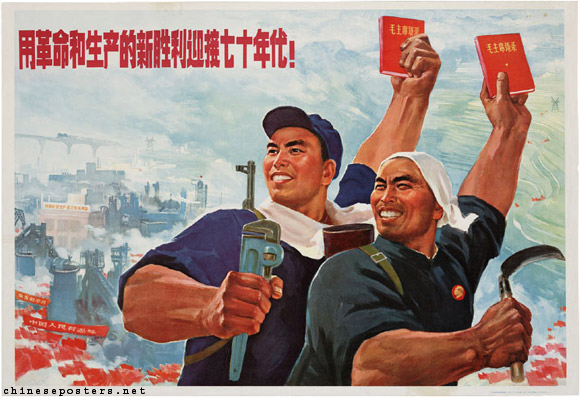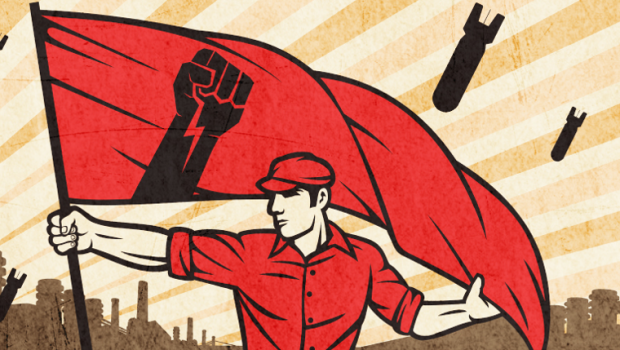Have you heard about The Iron Law of Oligarchy (TILoO)? No? There's no shame, I haven't (until recently) either, but now since I did, I have some remarks hopefully worth sharing.
OK, but first - what's the TILoO about? Here's the briefest version:
Rule by an elite, or oligarchy, is inevitable as an "iron law" within any democratic organization as part of the "tactical and technical necessities" of organization.
Don't freak out (just yet), I'm not bothered by the most obvious, political aspect of "democracy" :) What I'd like to refer to is Agile software development & the idea of self-governing, manager-less, "democratic" teams. Yep, the stuff that pretty frequently gets twisted & simplified to few cliches & slogans about removing all the management AKA "dev-socialism".

Does TILoO apply to Agile?
Why not? Idea of self-governing team reminds me a micro-society based on the idea of direct democracy (direct means that members participate in governing directly, not via their chosen representatives).
Usually when we speak about direct democracy the first thing that comes to mind is making decisions by voting (with the majority "winning" - that's not really Agile ...) - but that's not a must: any way that's accepted by community is fine (& that's very Agile). What about other characteristics of direct democracy? Putting forth initiatives? Anyone can do that, CHECK. Ability to set an obligation / privilege & revoke them? Sure, Agile team has 100% decisiveness about internal matters, CHECK again.
So, yes, I don't see any problems with an experiment of applying TILoO to Agile community.
Does TILoO even make sense in XXI?
Let's get back to TILoO itself then. First valid point - does it even make sense to consider something invented in 1911? A lot has changed within these over 100 years, including people way of thinking, ethic standards, motivations & common beliefs.
Apparently, not that much. The standard sequence of cause & effect still applies:
- Need for governance creates rules & policies.
- Rules & policies create power (& the awareness of having power).
- Power attracts corruption & desire for even more power (even with lofty motives).
What about need for governance in Agile teams? It may not be formal, but it still exists - Agile is much more about discipline than it seems at the first glance. Also, cross-discipline, independent team is not about team member uniformity: people are supposed to utilize their unique talents, specializations & become "field-leaders" who "set the course" in particular areas.

Sooner or later, some "areas" become more dominant ("driving") & so do people who drive them. Usually, ... that's ok. Team works out its natural, inner balance -> new, natural (not imposed) leadership emerges for team's own good. And so follow principles, guidelines, rules, policies - in any form (convention test, written rule, informal inspection, etc.)
From now on it's quite obvious what happens - people are just people: when they see they succeed (play good their role & there's a clear benefit out of that), they want to "go with the flow" or in other words: scale-up themselves - do bigger, better, faster, more. And to do that, they need more causative power, maybe taken from those who either are not that successful or even would prefer to give it away, because they are not comfortable with the responsibility (yes, there are people who are AWESOME specialists in their area, but they prefer to be told / supervised / monitored explicitly what they should do above some level of their comfort threshold).
Obviously, smart individuals with great ambitions do not strike co-operation through - they tend to find a common language with other individuals of their kind who have complementary skills / ambitions. And so cliques / oligarchies are quietly born: even if for the greater good.
What can we get out of TILoO?
This really happens. If you claim it doesn't in your case:
- either your community is so small, that it's an oligarchy itself (& it doesn't need anyone else)
- or actually you may have a much bigger problem -> people are just too passive / insecure / satiated to take risks, try bold moves, go for meaningful improvement & they prefer to watch out for what other will do

But cheer up, TILoO is not that bad:
- Merit-based oligarchy is a foundation of meritocracy.
- Leadership is also a kind of skill -> not everyone possesses it, not everyone can train it & you should make sure you utilize those who do have it.
- The setup in which everyone is (feels) obliged to have an opinion ("vote in") on everything & co-take responsibility for every decisions is much, much worse (because it depreciates value of expertise & makes people withdrawn & over-conservative).
- Forced uniformity (foundation of "dev-socialism") tends to twist quickly:
- "nothing about us without us"
- "I am entitled to"-syndrome (as I am a member of the team, I can meddle / interfere with anything I want, even if it doesn't make sense & people are sick of it already)
- "fuck the authorities" (I've already described it here)
That's why IMHO instead of getting worried with the rise of new oligarchy, organization should be much more focused on maintaining mechanisms needed to perform its sanity check (whether the oligarchy is still merit-based & does it still fully contribute to bringing customer(s) value).
Pic: © DreamFinder - Fotolia.com








